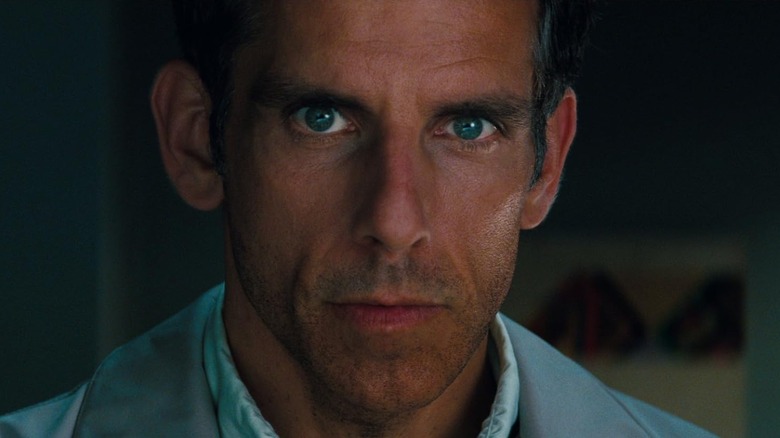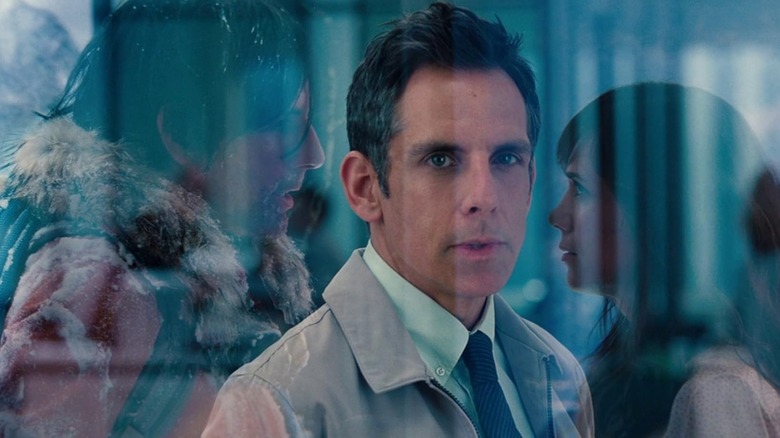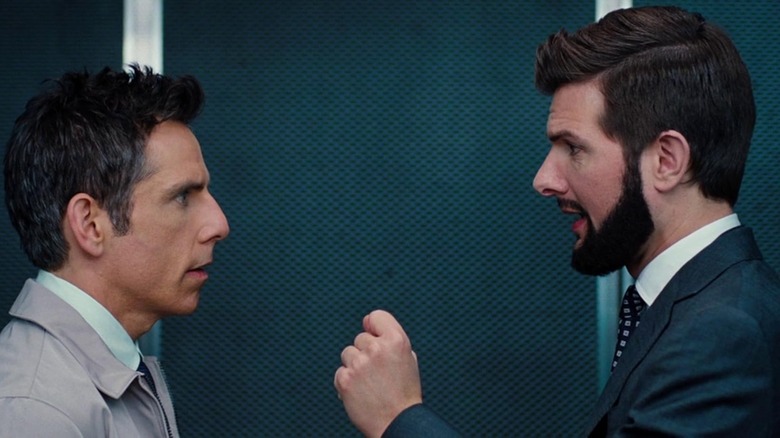
As a director, Ben Stiller is a wily one. After skimming the surface of Gen-X disillusionment with his debut feature “Reality Bites,” the son of comedians Jerry Stiller and Anne Meara made his name helming silly-smart films whose zany exteriors belie their depth. Take his 1996 comedy “The Cable Guy.” Though it initially proved to be something of a divisively dark curiosity (Roger Ebert actually listed it among his picks for the worst movies of its year), it’s since undergone a reevaluation and is now regarded as being prescient in its satirization of the public’s true crime obsession. Stiller’s 2001 fashion industry burlesque “Zoolander” has likewise become a full-fledged cult classic, while his edgy takedown of Hollywood ego and excess, “Tropic Thunder,” is just as audacious now as it was when it first arrived in 2008.
In contrast to their barbed social commentary, these films are pretty broad when it comes to their humor and characterization. So how, then, did Stiller go from directing movies where Owen Wilson removes his own underwear while keeping his pants on to helming much of Apple’s crown jewel “Severance,” a mystery box series about the white collar work grind and corporate malfeasance (a show so captivating you may not realize just how bleak and bizarre it is until you rewatch it)? For the answer to that, look no further than the film he made after “Tropic Thunder” but before he reinvented himself as a prestige TV guru with the true crime drama series “Escape at Dannemora.”
And no, I don’t mean “Zoolander 2,” a box office flop so bad it practically sent Stiller into an existential crisis.
The Secret Life of Walter Mitty was Stiller attempting to be taken more seriously
It was a different world in 2011. Stiller being three years out from “Tropic Thunder” was enough for 20th Century Fox to give him $90 million to direct “The Secret Life of Walter Mitty,” a movie based on James Thurber’s 1939 short story about the escapades of a hapless, daydreaming everyman and the second such adaptation of its kind after the 1947 film helmed by Norman Z. McLeod. It was certainly a curveball coming from Stiller.
Fox went all-in on the film’s awards season prospects. Angling to replicate its success with Ang Lee’s Oscar-winning box office sensation “Life of Pi” a year earlier, the studio screened upwards of 20 minutes from Stiller’s dramedy adventure at the 2013 CinemaCon. Early reactions to the “Walter Mitty” footage likened it to a fanciful epic in the vein of “Forrest Gump” but with a grittier indie sheen. Stiller told Empire Magazine the film was his attempt at “just trying to do different things, to make the kind of movie I’m interested in making.” The subtext was clear: Stiller always had something to say with his directorial efforts, but this time he wanted folks to get that he was saying something. This was the true emergence of Stiller, the serious artist who does stuff like banning phones on his sets.
Did it work? Sorta not really. Critics and audiences were tepid towards the film, which only made a little more than double its budget at the box office (and the vast majority of it overseas). But take a closer look at “Walter Mitty” and you’ll start to glean why Dan Erickson’s “Severance” pilot script — which he submitted to Stiller’s Red Hour Productions for consideration two years after the film’s release — aligned so well with its director’s burgeoning interests.
Walter Mitty is the missing link between Stiller’s older work and Severance
Steve Conrad’s script for “The Secret Life of Walter Mitty” envisions Walter (Stiller) not as a put-upon sad sack like in earlier renditions of the story, but as a lonely romantic soul who has long put the concerns of others first. He’s closer to a quirkier, more soft-spoken George Bailey from “It’s a Wonderful Life” than a henpecked “loser” like he is in both Thurber’s short story and McLeod’s film. Stiller’s movie also sympathizes with the plight of the working class the way that Frank Capra classic does; in his rendition of this tale, Walter’s exploits are as much about him trying to save his and his coworkers’ jobs at Life magazine as they are about him standing up for himself and living his life to the fullest (more so, even).
When you combine all that with Walter’s struggle to reconcile who he is in his real life with the person he imagines being in his wildest waking fantasies (a character with two distinct identities and personalities, you say? Almost like his mind has been … severed?), Stiller’s fascination with Erickson’s script suddenly starts to make all the more sense.
Admittedly, the sequences where Walter daydreams strike an irreverent tone that doesn’t recall the weirdness of “Severance” so much as the fake movie trailers at the start of “Tropic Thunder.” (It doesn’t help that many of them riff directly on well-known films, like when Walter imagines himself aging backwards, Benjamin Button-style.) However, the scenes of Walter spending time with his family, chatting with his kindly workplace crush Cheryl (Kristen Wiig), or being mocked by his slimeball boss Ted (future “Severance” star Adam Scott, whose evil beard is practically its own character) almost feel like a test run for the domestic and workplace drama on Stiller and Erickson’s Apple series. Even the way Stiller and cinematographer Stuart Dryburgh depict the interiors of Life’s headquarters (a glass and concrete jungle of glacial blues, grays, and whites where Walter is often made to look small) brings to mind innies wandering the severed floor in the Lumon Industries building.
“Walter Mitty” is very much the missing link between Stiller’s filmmaking past and his future with “Severance.” He hadn’t refined the mix of wholesome earnestness and acerbic offbeat satire he delivers with that show just yet, but you can see him striving to get the balance of ingredients in that delicate formula just right. Like so much of his earlier work, perhaps it’s time Stiller’s “Walter Mitty” got its own reexamination.




Leave a Reply